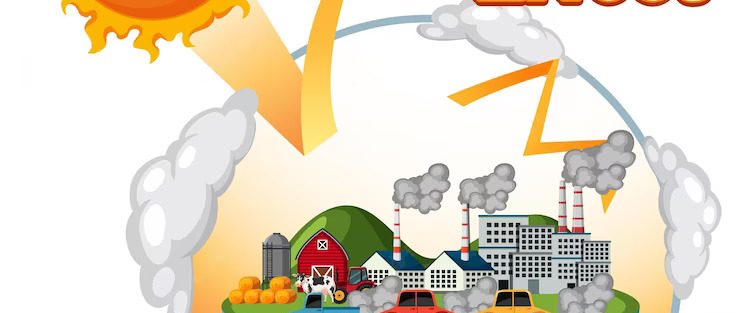The greenhouse effect is a phenomenon that plays a significant role in shaping the Earth’s climate. It is both natural and necessary for supporting life on our planet. However, human activities have intensified this effect, leading to global warming and climate change. In this blog post, we will explore the greenhouse effect, its causes, and its consequences for our environment.
What is the greenhouse effect?
The greenhouse effect refers to the process by which certain gases in the Earth’s atmosphere trap heat from the sun, preventing it from escaping back into space. These gases, known as greenhouse gases, include carbon dioxide (CO2), methane (CH4), nitrous oxide (N2O), and others. They act like a blanket around the Earth, allowing sunlight to enter but trapping heat close to the surface.
Natural versus enhanced greenhouse effect:
The greenhouse effect is a natural phenomenon that has existed for millions of years, helping to maintain the Earth’s average temperature at around 15°C (59°F). Without it, our planet would be much colder, and life as we know it would not be possible. However, human activities, primarily the burning of fossil fuels, have increased the concentration of greenhouse gases in the atmosphere, enhancing the greenhouse effect and leading to global warming.
Causes of the enhanced greenhouse effect:
The primary cause of the enhanced greenhouse effect is the burning of fossil fuels for energy production, transportation, and industrial processes. This releases large amounts of carbon dioxide into the atmosphere. Deforestation and land-use changes also contribute to increased greenhouse gas emissions. Additionally, the release of methane from agricultural activities, livestock, and waste management further amplifies the greenhouse effect.
Consequences of the greenhouse effect:
The enhanced greenhouse effect has led to global warming, resulting in various consequences for our climate system. Rising temperatures have led to the melting of glaciers and ice caps, causing sea levels to rise. Extreme weather events, such as heatwaves, hurricanes, and heavy rainfall, have become more frequent and intense. Changes in precipitation patterns have also impacted agricultural productivity and water availability.
Mitigating the greenhouse effect:
Addressing the greenhouse effect requires global efforts to reduce greenhouse gas emissions and transition to cleaner, renewable energy sources. This involves promoting energy efficiency, investing in renewable technologies like solar and wind power, and improving transportation systems. Additionally, sustainable land management practices, afforestation, and reforestation play a crucial role in mitigating the greenhouse effect.
Conclusion:
The greenhouse effect is a natural process that is essential for supporting life on Earth. However, human activities have intensified this effect, leading to global warming and climate change. Understanding the causes and consequences of the enhanced greenhouse effect is crucial for taking action to mitigate its impacts. By transitioning to cleaner energy sources, adopting sustainable practices, and promoting environmental stewardship, we can work towards a more sustainable and climate-resilient future.
Remember, each individual’s actions, no matter how small, can contribute to the collective effort in combating climate change and protecting our planet from the adverse effects of the greenhouse effect.

